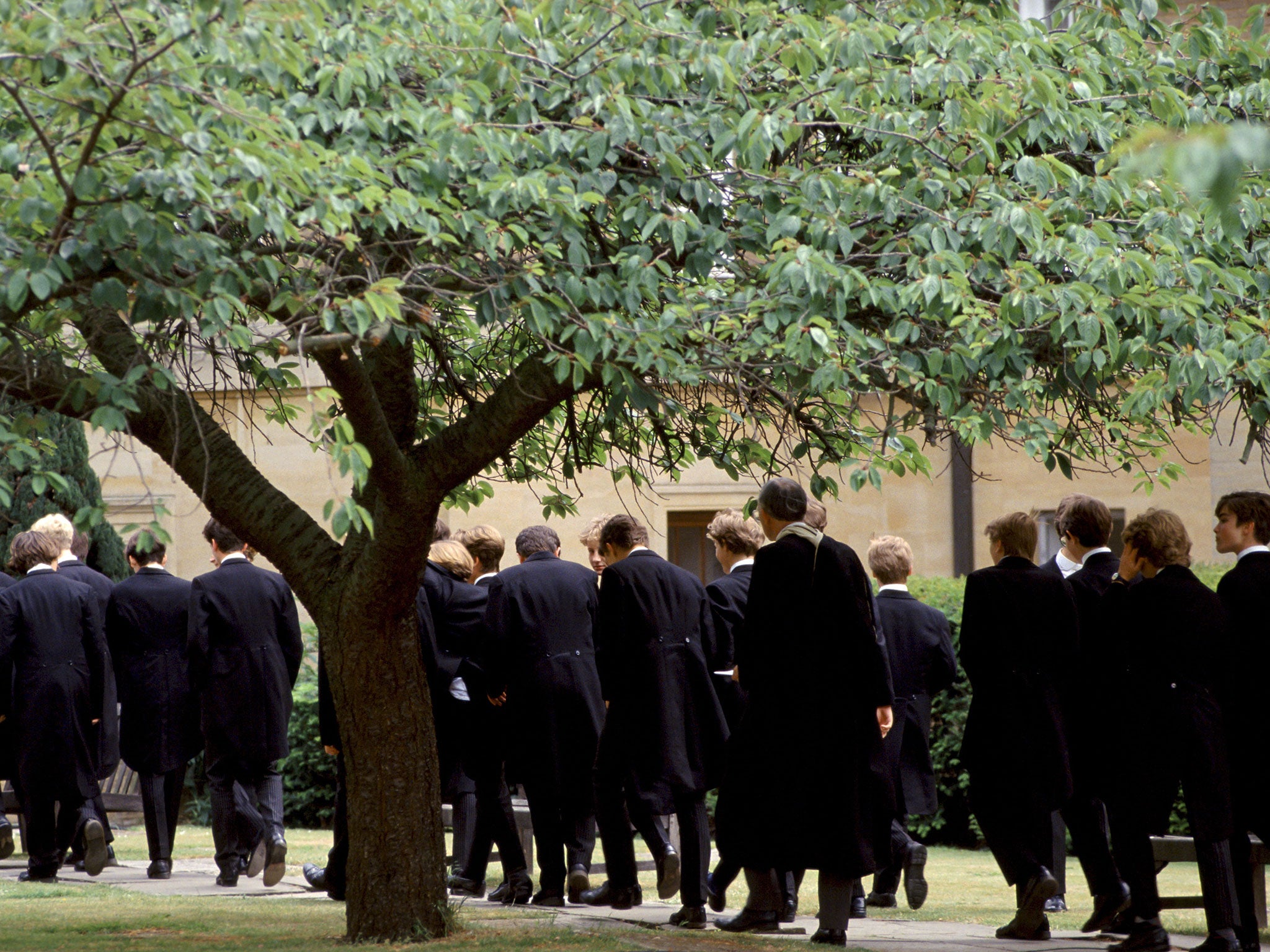Boarding schools struggle to deal with race 'ghettoes' with foreign children now forming a third of boarders
Offspring of the super-rich sometimes refuse to do their own housework and expect hotel service from boarding staff.

Your support helps us to tell the story
From reproductive rights to climate change to Big Tech, The Independent is on the ground when the story is developing. Whether it's investigating the financials of Elon Musk's pro-Trump PAC or producing our latest documentary, 'The A Word', which shines a light on the American women fighting for reproductive rights, we know how important it is to parse out the facts from the messaging.
At such a critical moment in US history, we need reporters on the ground. Your donation allows us to keep sending journalists to speak to both sides of the story.
The Independent is trusted by Americans across the entire political spectrum. And unlike many other quality news outlets, we choose not to lock Americans out of our reporting and analysis with paywalls. We believe quality journalism should be available to everyone, paid for by those who can afford it.
Your support makes all the difference.Britain’s public schools are dividing into race “ghettos” as boarders from overseas struggle to integrate with other pupils.
Teachers are now being given training sessions in how to cope with integrating the children of foreigners who often only want to be with others of the same nationality. Another common problem is “paying customer syndrome” where the offspring of the super-rich refuse to do their own housework and expect hotel service from boarding staff.
The proportion of pupils who are sent to British boarding schools from overseas has been steadily increasing. Now 24,000 of the UK’s 68,000 boarding school pupils are foreign.
The Boarding Schools Association (BSA) has been holding training sessions to help schools cope with the increasing proportion of pupils who come from abroad. Teachers attending reported that ghettos of Chinese and Russian children often form where pupils are reluctant to mix with other nationalities
Alex Thomson, BSA’s Director of Training, said: “There’s always an issue of making sure your boarding house or pupils integrate. If you’ve got overseas students from China and English is not their first language it’s very easy that they chat away on their own in Mandarin.”
Mr Thomson said the proportion of students coming from overseas has increased partly as a result of reduced interest from UK families. “Some schools have seen a decline in the UK home grown students and have had to look to overseas…We’ve seen a steady decline in military or diplomatic families sending pupils to board.
“We ran these workshops to help schools understand more about culture shock and to learn more about integration so that cultures at the school mix together well.
“You’ll always hear about staff who’ll get one child from a particular background and they’ll say they had a hard time understanding they weren’t there as helpers or even hotel staff. If [a pupil] is used to five star hotels they’re clearly not going to get that at a boarding school in the UK.”
Join our commenting forum
Join thought-provoking conversations, follow other Independent readers and see their replies
Comments